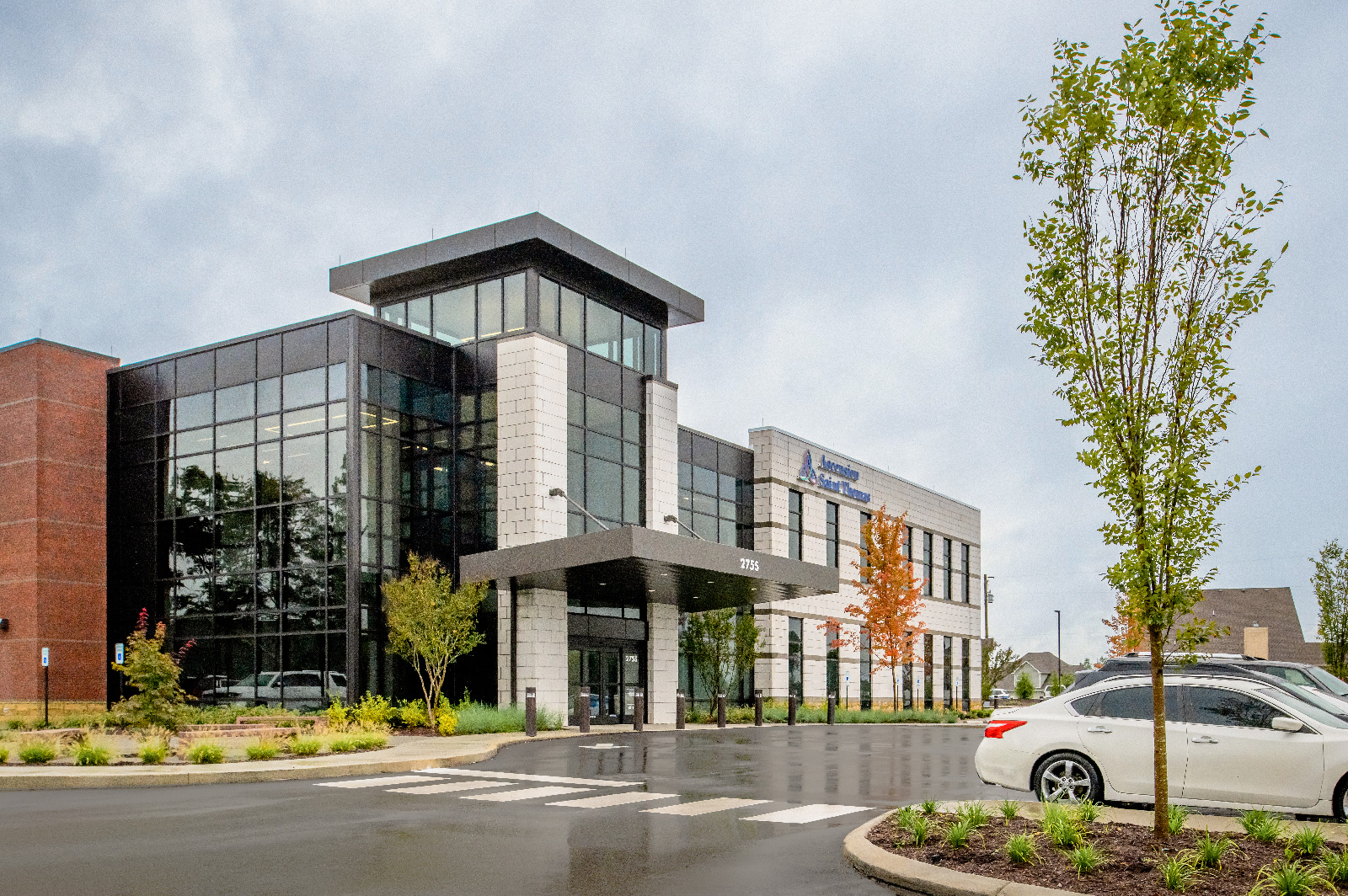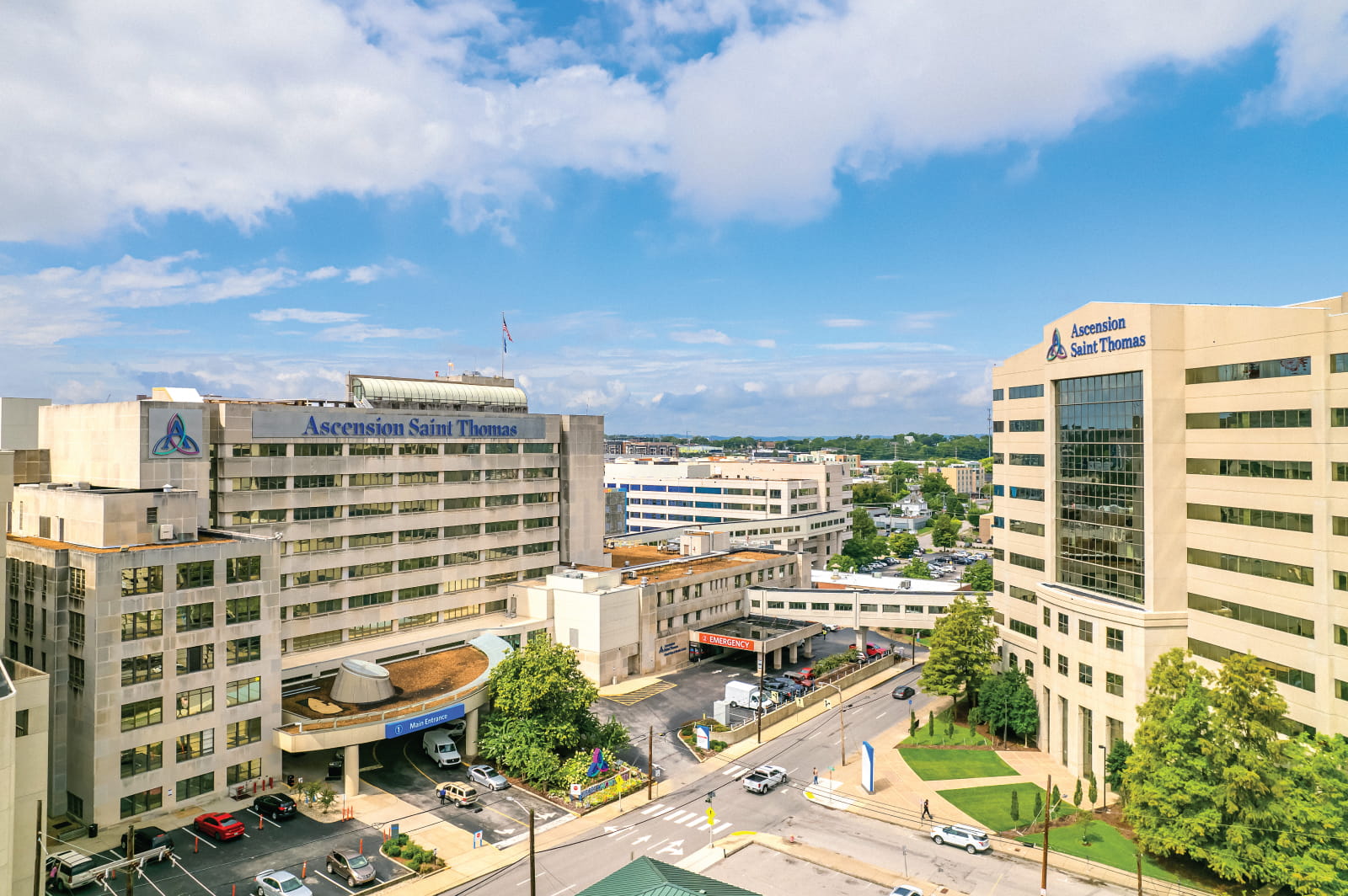
Colon cancer screening in Middle Tennessee
Getting regular colonoscopies may help find polyps and cancer early, when they are most treatable. When polyps and cancer are found early, there may be more options for treatment too. Ascension Saint Thomas, in Middle Tennessee, we provide colonoscopies and at-home colorectal tests that are right for you based on your age, family history, smoking history and other risk factors.
Nationally accredited for rectal cancer care

At Ascension Saint Thomas, we are honored to be accredited by the American College of Surgeons (ACS), a leader in surgical care for over a century. Our participation in the ACS National Accreditation Program for Rectal Cancer (NAPRC) ensures that you receive the highest standard of care, guided by proven, multidisciplinary approaches.
The NAPRC program is built on internationally recognized best practices designed to improve the diagnosis and treatment of colorectal cancer. Our experienced doctors and care team deliver advanced surgical and nonsurgical care to help:
- Enhance your quality of life
- Improve functionality of the rectum
- Increase survival rates
- Reduce the recurrence of this cancer
When it comes to your health, trust in the quality and expertise that come with ACS accreditation.
Colon cancer screening recommendation
At Ascension Saint Thomas Cancer Care, we recommend men and women get their first colonoscopy at age 45. You may need to get a colonoscopy earlier if you have a personal or family history of polyps or colon cancer, diagnosis of inflammatory bowel disease, or if you have symptoms such as:
- Abdominal pain or discomfort
- Change in bowel habits
- Rectal bleeding
- Unexplained weight loss
Talk to your primary care doctor about scheduling a colonoscopy or other colon screening. We’ll connect you with the right specialist for the colonoscopy and follow-up care.
What to expect during a colonoscopy
During your colonoscopy, you'll receive anesthesia before the colonoscope — a long, flexible tube containing a small camera — is inserted into your colon. This camera helps your doctor find polyps. Colon screenings aren’t just for finding cancer, but for stopping it before it starts. While not all polyps are cancerous, they can become cancerous in the future. That’s why it's important to identify and sometimes remove polyps.
Comprehensive care for colon and rectal cancer
Colorectal cancer is the third most common cancer in men and women. Early and accurate screening and diagnoses are important. And getting the right treatment at the right time decreases the challenges of later-stage colon cancer diagnosis. From colonoscopy and the removal of precancerous polyps to colon surgery, targeted radiation treatment and chemotherapy, our cancer care team has the expertise to deliver treatment options for both early and later-stage cancer diagnoses.
Your doctor and care team work together with you on a care plan. Your colorectal surgeon will answer your questions, paying attention to your physical and emotional needs and those of your caregivers, including what you can eat. In addition to your surgeon, your care team may include a medical oncologist, radiation oncologist, radiation therapist, oncology-certified nurses, dietitian, social worker, chaplain and supportive palliative care specialist. And your entire care team stays connected to discuss your treatment and progress. As your care needs change, we’re ready to support you.

